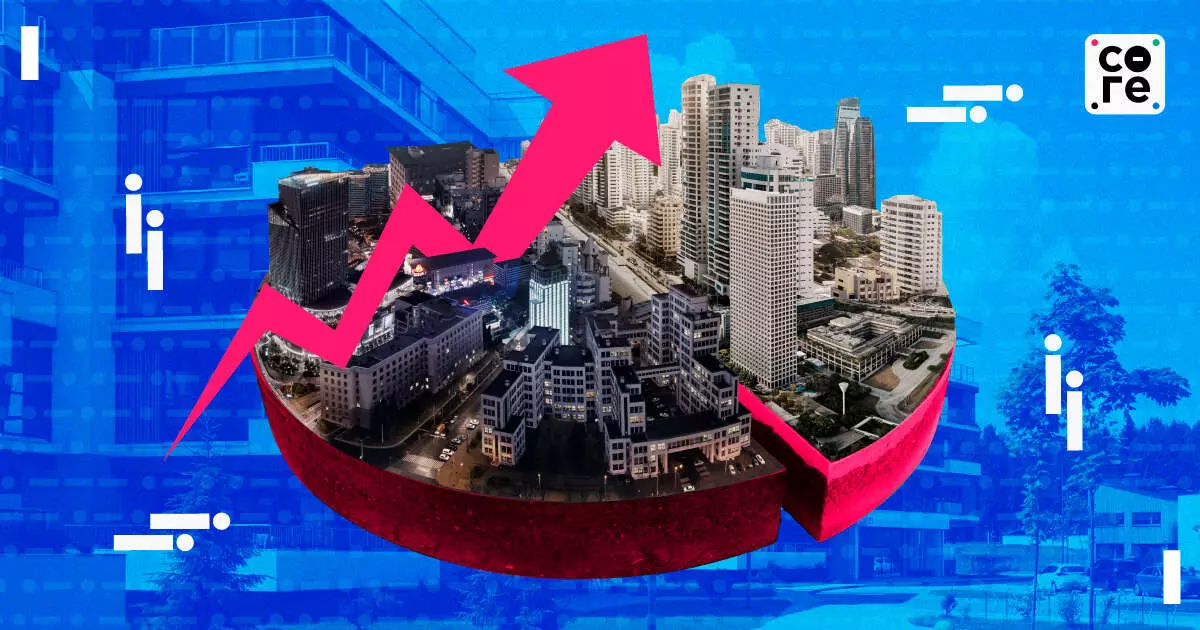
India’s Skyrocketing Real Estate Prices Will Be A Problem In The Long Run
Fuelled by only the rich buying luxury homes as investment prices of homes have shot up manifolds, and could affect rents too.

Between January and May 2024, real estate developer DLF sold close to 3,000 luxury homes across multiple projects. On each occasion, these Gurgaon apartments, adjacent to Delhi, were sold in about three days' time.
Most of these apartments sold for close to Rs 7 crore or $1 million then. Around 25% of these apartments were bought by non-resident Indians or NRIs according to reports. This isn’t typical to Gurgaon, but happening across India.
Premium properties have seen huge demand as well-to-do Indians both resident in the country and outside snapped up real estate, bidding up prices, project after subsequent project.
“While India’s middle class tightens its belt, cutting back on everything from tea to two-wheelers due to soaring consumer inflation, the richest 1% who own 40% of the country's wealth are snapping up homes in cities with well-paying jobs,” said a Reuters report and poll.
The poll found that average home prices in India will rise steadily in the coming years driven mainly by demand from wealthy individuals, while the rising cost of living will make owning a property unattainable for most people.
The Rich Can’t Keep This Up
Several research reports have pointed out that the affordable end of the housing segment has been slowing steadily for more than a year with people at the lower end of the economic scale unable to afford houses or even the 10-20% down payment required to apply for a loan.
Could prices and demand now be reaching peak levels?
The Reuters poll and report said that while demand is enough to sustain price rises in the short-term, property analysts believe there are limits to how much the rich can keep demand alive in an economy which is already slowing down. So much so that real estate industry watchers are worried that the creamy end might slow down on buying, presumably because they might get bored of buying property and at which point the market might fall suddenly.
On the other hand, rents are thus expected to rise even faster than house prices, by 7.5% to 10% over the coming year, according to the median range given by 11 property experts.
Need For Affordable Housing
While it is good that premium segments of the housing market have grown rapidly and going by signs would continue to grow for some time, it is time to pay attention to those who are getting edged out of the housing market, whether for purchase or even rent.
Cities like Bangalore have already seen discontent among its migrant youth after landlords started raising rents two years ago. Most of these youngsters work in IT companies at starting or close to starting salaries.
Combined with the general sense of insecurity in their own industries, rising home prices are a big deterrent to stability and thus a positive outlook for the future.
Creating affordable home segments, like the UK social housing projects or Singapore's Housing Development Board, where homes are owned by the state or run by the state but rented out to those starting out, have never really taken off in India where the need has been so high.
The lack of such housing projects has led, for example, to slums in Mumbai where the onus of survival is placed on the individual rather than the state.
Investment Distortions
High real estate prices also create other distortions in the channelisation of savings because people find it more and more attractive to invest in real estate rather than anywhere else. This locks their capital in and locks out genuine buyers as in those who would buy and stay in that house as opposed to investing in it.
More significantly, high prices and frenzied buying also creates the impression that the economy is on a strong footing. This triggers fresh construction of housing stock. If this sounds familiar, it is what also helped create a stock of 60 million unsold homes in China as per a Bloomberg estimate five months ago.
And that story has not ended well.
Fuelled by only the rich buying luxury homes as investment prices of homes have shot up manifolds, and could affect rents too.
Zinal Dedhia is a special correspondent covering India’s aviation, logistics, shipping, and e-commerce sectors. She holds a master’s degree from Nottingham Trent University, UK. Outside the newsroom, she loves exploring new places and experimenting in the kitchen.

